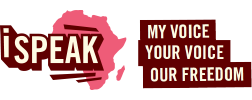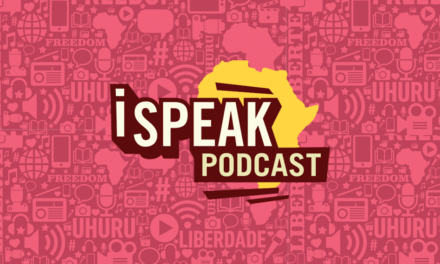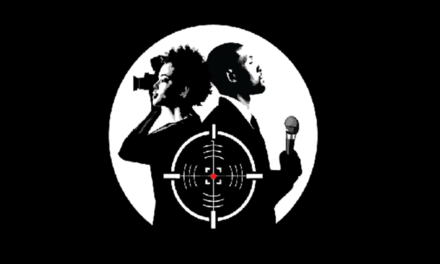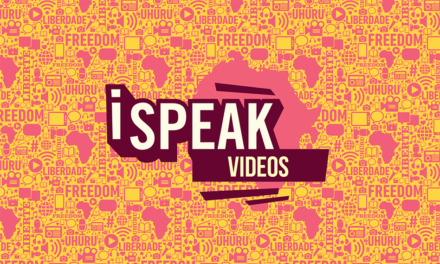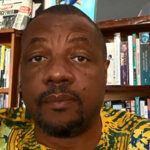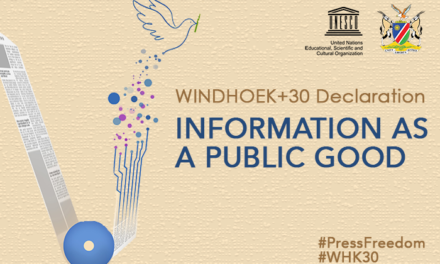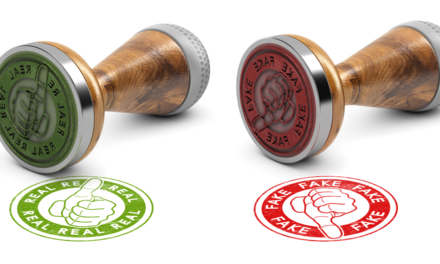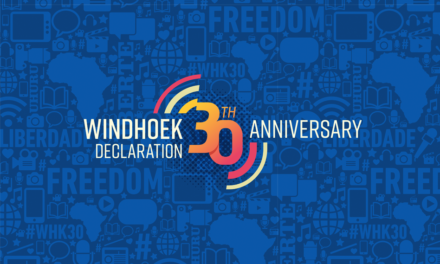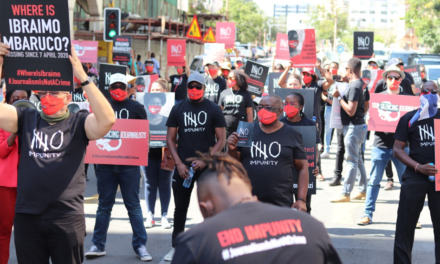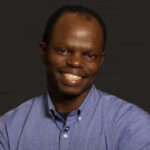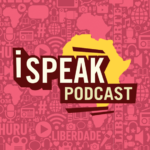
Africa’s gift to the world
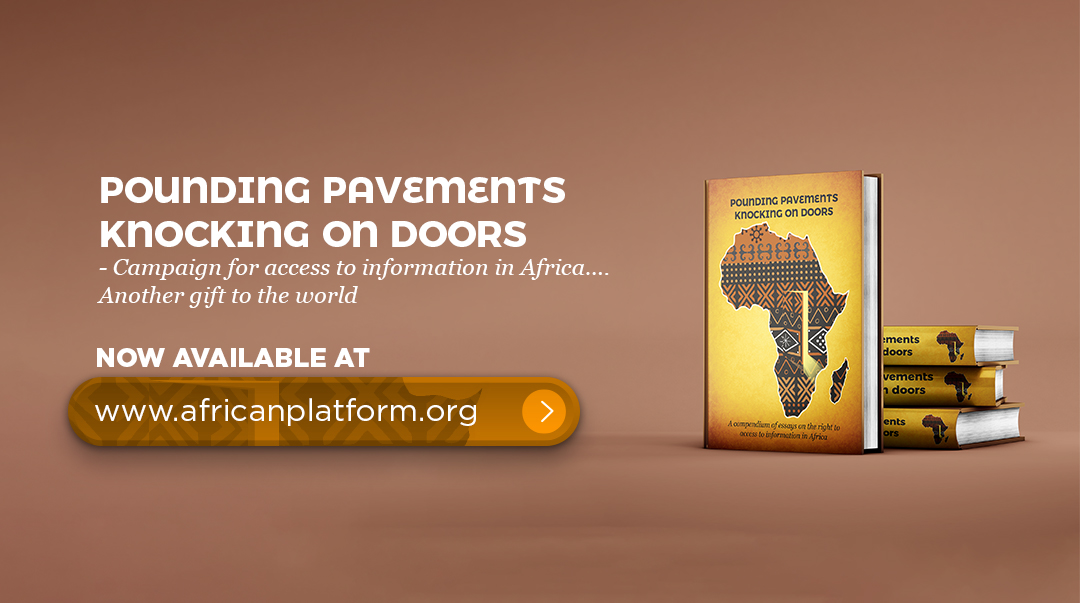
Civil society organisations’ stories of determination, focus, commitment, persistence, and patience abound, but they are rarely told to the public. These accomplishments are shared between small groups – either as part of financial narratives for the funding partner, as programmatic reviews of activities and in some instances, as best practices or case studies of successful lobbying and advocacy. If and when these stories are shared on the continent, they stay within the confines of small audiences.
It is rare for the protagonists of these triumphant moments to relate their arduous journeys of success to a global audience. But these stories need to be shared so that there is a visible change in the narrative around the work of African civil society organisations. The stories we are constantly exposed to convey the impression that the knowledge flows inward – from the Global North to the South.
But there are bodies of work which show that African CSOs are also leading from the front.
This story, which tells of the push for a special day commemorating access to information, is the culmination of years of advocacy and clearly articulates how the process was initiated and led by CSOs in Africa.
There is nothing more inspiring or historic than this accomplishment – it is yet another gift from Africa to the world, following the adoption of the Windhoek Declaration on Promoting an Independent and Pluralistic African Press 28 years earlier, which in 1993 birthed World Press Freedom Day, now celebrated annually around the world.
AT THE FINISH LINE
On 15 October 2019, a special moment occurred when the 74th United Nations General Assembly (UNGA) unanimously adopted the resolution proclaiming 28 September as the International Day for Universal Access to Information (IDUAI).
It was a champagne moment for the collective of African civil society organisations under the African Platform on Access to Information (APAI) banner that had worked with effort and passion towards this goal for over a decade.
Four years earlier, in 2015, APAI had successfully lobbied the UNESCO General Conference to adopt 38 C/Resolution 57, declaring 28 September as the International Day for Universal Access to Information.
Getting UNGA to do the same would pave the way for global recognition and ensure that the intervention contributed to accelerating development outcomes in Africa through ATI.
On behalf of their APAI colleagues, three advocates undertook the final sprint: Gilbert Sendugwa, Executive Director at the Africa Freedom of Information Centre; Edetaen Ojo,
Executive Director of Media Rights Agenda; and Zoe Titus, Director of the Namibia Media Trust.
For them, this moment was the equivalent to crossing the finish line of a triathlon replete with seemingly insurmountable impediments with only a smattering of some lucky breaks.
For Gilbert, Edetaen and Zoe, that special day was the culmination of years of planning,
strategising, lobbying and advocating with, and on behalf of, their APAI peers. At the beginning of the lobbying, they knocked on door after door of those with leverage, first in Africa, then Paris, Washington and New York, and back again.
Towards the end, they almost wore off the soles of their shoes as they pounded the pavements of Manhattan, in and around the UN headquarters.
So, when the news came through, of course, it was momentous …
Gilbert: As I waited for the UN General Assembly to consider the resolution, I was both anxious and restless. It did not help that I was on a mission in Banjul, The Gambia, where, as a member of the joint African Union and European Union civil society steering committee on Africa’s partnership with Europe, I was hosting a seminar for civil society from Africa and Europe to discuss human rights and democracy in both continents. My thoughts were divided between the workshop I was involved with in Banjul and the status of the resolution in New York.
I was responsible for ensuring that everything goes right – that officials from the African Commission on Human and Peoples’ Rights, the African Union and European Union were present and able to give their speeches, making sure that they are properly attended to and they have the information and attention they deserve.
Upon receiving the news of the passage of this all-important resolution, I informed the colleagues who were with me at that time – Ambassador Salah Hammad, the Head of the African Governance Architecture, Secretariat at the African Union and Omar Faruk from the National Union of journalists of Somalia. There was instant celebration.
In the last 23 years of my career, I have campaigned for several resolutions and decisions at the level of the African Commission on Human and Peoples’ Rights, UNESCO, the African Union, United Nations Special Procedures, and various parliaments on the passage of access to information laws, and other decisions, but the news of the adoption of September 28, as an International Day for Universal Access to Information was the most special, exciting and yet humbling of those experiences.
Edet: I was at my reading desk at home in Lagos when I got the information. I had been monitoring the process from my office in Lagos.
But as you know, New York is five hours behind and nothing had come through when I left the office and when I got home I didn’t go to bed.
I was constantly reaching out to colleagues like Gilbert, Malcolm Joseph, our colleague in Liberia, who had a very close relationship with the Liberian ambassador to the UN. My question throughout the day was: Have you heard anything?
It was quite exhilarating when I got the news that it had actually been adopted without a vote, which meant that it was adopted by consensus – a unanimous decision, really. So it was just incredible.
Zoe: I received an email from Gilbert, and the emotions that ran through me at the time – excitement, affirmation, relief.
LIBERIA TAKES ATI BATON TO THE FINISH LINE
Instrumental in accomplishing this mission was Liberia’s commitment and that of its then- ambassador to the UN – His Excellency, DeeMaxwell Saah Kemayah Senior – who drew on his country’s experience with access to information when presenting the resolution to the member states at the 74th session of UNGA.
In his impassioned and powerful presentation, Saah Kemayah, now Liberia’s foreign minister, zoned in on the country’s struggle with the Ebola crisis and how access to information and information dissemination helped curb the pandemic. He described it as “the difference between life and death.”
As Edet describes: That was a very powerful statement and on the many occasions that I heard him say it, I noticed that it really resonated with people. It drove home the significance of access to information and the impact that it can have on people’s lives.
THE LIBERIAN PARTNERSHIP
Requesting Liberia to endorse and support the resolution was not initially planned. After a great deal of deliberation and the working group’s frustration with trying to get commitment from country delegations, the decision was made.
We went on a series of trips to New York to have meetings with various national delegations, but it was always difficult. These people are diplomats, so they may tell you, “Oh, yeah, we are in support,” but you can never really tell where they stand. So, we always had to deal with some level of anxiety about whether this would actually be supported among the member states of the UN.
There was the fact that it was also being sponsored by Liberia. We were confident about their support because Liberia was fully on board, but it is not considered the most influential country in the UN system. It doesn’t have the kind of leverage that some of the big players had, but we couldn’t get those big players to commit to sponsoring our resolution because all of them kept saying that they need instructions from their home and government.
We needed one country that would support us fully – and through our analysis we felt Liberia was our best option. There were a number of things we thought through – it was a small country, but the first in West Africa to adopt access to information legislation, and we had relatively good contacts in government. Most importantly, we had colleagues in civil society and media that had contacts at a higher political level.
So, we took the decision to take our chances with the country of our choice, and off we went on a mission to Liberia.
We were anxious about the meeting, but unfortunately, we were not able to meet with President George Weah because he had another engagement. However, our colleague, Malcolm Joseph from the Centre for Media and Peace Studies in Monrovia, was able to connect with the president and receive instructions that were to be conveyed to Liberia’s Ambassador to the UN – Dee Maxwell Kemayah.
That was all we needed, really. The moment the instructions came from President Weah to the ambassador, we knew he was going to be 100% on board and committed – he just needed authorisation.
Okay, so now you have to consider that the first engagement we were going to have in New York was on the basis of a letter from President Weah, instructing the ambassador to put Liberia’s name behind this as sponsor of the resolution. That’s when we decided to rope in Malcolm who had never been on any of our missions and, in fact, was not even a member of the APAI working group.
We felt that neither I nor Gilbert knew the ambassador, and the significance of what we were working towards dictated that nothing should be left to chance. So we invited Malcolm to join us on the mission to New York because he had also indicated that he knew the ambassador personally, and we thought that it would be helpful in breaking the ice.
It was quite truly remarkable – the moment Malcolm walked in, the ambassador recognised him, and that really helped us to get a very frank and honest meeting where he talked about his own limitations, but nonetheless, his interest in making this happen.
We offered to assist in every way that was possible, including helping to write speeches and articulating the issues, but when we really sat down with him and discussed the importance of access to information in a variety of contexts, especially also for a country like Liberia, he immediately got it.
I mean, he just understood it, and there were two ways he himself reflected that. One was the role that access to information played in Liberia coming out of a conflict and overcoming the destruction that the prolonged conflict had on the country, and the other was the experience of how access to information and information dissemination had also helped Liberia to beat the Ebola pandemic.
So he immediately grasped the importance and actually used the expression that from “the experience in Liberia, access to information could be the difference between life and death.” That was a very powerful statement which he used over and over again, and it really resonated with people because it drove home the significance of access to information and the impact that it can have in people’s lives. It even moved me every time that I heard him say that.
Between his enthusiasm and our readiness to always help, we made a very good team. Most importantly, he was always honest – quite prepared to say: can you help me with this or how do I go about this or we’re having this meeting, what should the approach or the pitch be? So that whole process gave me enormous respect for the man – the way he approached issues, and spoke with so much passion and conviction, you would think that pushing for access to information was always his idea. We had spent some time at the beginning of the relationship prepping him, but after that, just listening to him speak publicly, you could see there was conviction. He really was able to just own it because he really believed in it, and he certainly didn’t look or act like a phoney politician just trying to sell something.
I found that to be very refreshing for an African leader because, in my experience especially, I come from a country where our leaders are very proud and never really agree that they don’t know everything. He was really ready to learn, listen, and put his best performance out there on whatever occasion he was engaged in.
In the presentation of the resolution that he did on the floor of the General Assembly, it was with enthusiasm along those same lines – a very powerful presentation of the importance of access to information and why the UN should vote in support of that resolution.
POUNDING PAVEMENTS
The road to this accomplishment took many turns – some good, some bad and, of course, many surprises.
One of those difficult moments was when Edet fell ill during an intense lobby and advocacy trip.
As Gilbert recalls: Soon after celebrating with everyone around me, I sent out a short message to APAI working group members on our WhatsApp group announcing the news for the adoption by the United Nations General Assembly of this all-important resolution. Everyone was very happy and excited.
A few days later, I sent out a long email message to the APAI working group members, including to those people who had since left the campaign member organisations but who had, after all, been part of this campaign since 2011.
In that email, I highlighted the highs, the lows and special moments of the campaign. One of the moments I talked about in that email was a scary moment, when my colleague, Edet Ojo, fell very ill while on a campaign mission to New York. His condition was deteriorating by the hour. He had cautioned me not to inform the family because they would be terribly worried.
Edet’s deterioration was weighing heavily on me – being in a strange and foreign land and not being sure what to do. I notified Zoe as the point person back home and as the chairperson of the APAI working group. In doing this, I was balancing the need to talk about it and inform someone while at the same time trying to relieve the stress of handling it by myself. To my relief, Edet’s condition improved as the days passed by.
While Edet was ill in bed, I reflected on the last few years we had spent travelling and working on the long and arduous ATI advocacy journey on behalf of APAI.
We had cultivated a very good working relationship. We discussed every challenge and shared any difficulty we encountered along the way. In the evenings we would talk about the happy moments and the highs of that day. We were open to advising each other on how best to get things done and so our strategy always worked well.
In many respects, this campaign made APAI working group members more than colleagues, but caring brothers and sisters.
For instance, whenever we were on a mission, Zoe would check on us every morning and every evening – either through WhatsApp or messenger or email, to find out how the campaign was progressing and also to find out how we were faring at a personal level. This was very special.
Edet himself makes light of his illness.
I fell really ill while we were in New York and Gilbert was so scared because he wasn’t sure if I was going to make it. The meetings were stressful – just the amount of distance we had to walk, sometimes in the heat of summer.
It is this understatement that is reflective of the APAI members’ commitment.
Meeting with different delegations to lobby them to put their weight behind an endorsement is no mean feat. While Edet and Gilbert nonchalantly describe their efforts, the depth of their dedication can be seen through these efforts.
The relentless hamster wheel cyclical effort required to lobby individuals, organisations and lobby groups is often underestimated.
We would start very early and work until late every day. We walked long distances, you know, visiting one mission after another and some of the venues of these appointments were really far apart – we would have an appointment at 11 o’clock on one side of Manhattan, and then we would be going to the other end of Manhattan for a 1 o’clock appointment and a few hours later, back again to where we had just come from. It wasn’t always possible to get public transport.
The difference was that, for the most part, national delegations to UNESCO in Paris were within the UNESCO complex and so their offices were inside the headquarters. This was not the case with delegations to the UN, who had their embassies and diplomatic missions all over Manhattan and sometimes it was really quite difficult to locate some missions.
That pounding of pavements and knocking on doors is a very powerful image of what we did over the years. We would go to these cities – namely Paris, New York and Washington – for a week at a time, over a period of about three years each, for both the UNESCO process and the advocacy at the UN.
More importantly, we had to be flexible and adapt because, you know, situations would keep changing from one moment to another. For example, you’d have an appointment for a particular time, but then moments before the scheduled time, we would get a message cancelling or postponing the meeting because of a new development. This flexibility was needed and important to keep the campaign on course.
Edet reiterates the experience of their intense lobbying efforts while emphasising and validating Gilbert’s recollection of how they constantly adapted their strategy to engage with the different country missions. Adaptability and focused intention are attributes that worked for them.
Access to information is really our core business.
It’s something we believe in, and because we’ve been doing this for a while, there are a number of entry points that we were able to pick from. So, depending on the country we were going to meet, we would work out the most effective strategy.
So, for some countries where human rights were a big issue, we tried not to make it a human rights discussion so that they wouldn’t feel threatened by it. We would approach them from a development perspective and show them how access to information can really be a powerful catalyst for bringing about economic development, maybe even political development.
Similarly, for some countries, the anti-corruption approach was not something that they were going to be very comfortable with, especially when they have a problem with ethical conduct and fraud or reputation for corruption. So it was really a question of trying to understand what the country’s interests on ATI were. So that’s kind of the strategising we often had to do.
Gilbert provides similar insight into their strategic thinking.
It was the biggest and yet most challenging of the campaigns I had undertaken in decades. In our strategies, we had to be convincing and yet, at the same time, balance the interests of member states.
At the time, many countries, including in Africa, were shutting down internet, the main channel through which citizens access public information. More than half of African Union member states and more than one-third of United Nations member states did not have access to information laws. Yet, we needed them to support and sponsor this resolution. This was quite challenging.
In the end, we resolved to market access to information as a sustainable development issue, essential for the realisation of all Sustainable Development Goals but also critical for measurement of progress that each member state was making to realise the SDGs. It was exciting for me because, for the first time, we were going to have a special Day where all UN member states, governments, civil society organisations, media and development partners would discuss how to address the development challenges, many which are escalated and compounded by lack of access to information – whether it is corruption, inefficiency in service delivery for women, youth, people with disabilities, and refugees, or have borrowed resources squandered on unnecessary projects and other issues that affect the development.
It wasn’t always easy to predict the situation, as Edet describes.
There were times when we didn’t have all the information, and during the course of our conversation, something would spark, and we would pick up on it.
We were not always able to anticipate precisely or accurately what the motivation might be, so we were always alert to those possibilities and ready to leverage them, take advantage of them and elaborate on them. I think that worked well for us.
What you need to understand is that we were also effective because both Gilbert and I are pretty good with access to information. We knew the various ramifications and manifestations so we could always turn an issue around.
One of the lessons for me is that if you’re doing advocacy, you really need to know what you’re talking about. Otherwise, you can easily become dumbstruck or stuck in a situation that you have not sufficiently anticipated and prepared for.
We always prepped every time we went on a mission. Before our appointments with national delegations, we would sit down to plan, and the question we always asked was, “Okay, how do we win over this country or sustain their interest?”
For instance, when we met with the Angolan Ambassador to UNESCO, he wasn’t really interested in access to information per se. He eventually turned out to be the biggest supporter and lead sponsor because we were able to persuade him to look at the issue based on his exasperation. He mentioned his frustration with the fact that UNESCO focused specifically on French and English and was not very interested in conducting its business in other languages, like Portuguese.
We immediately responded by explaining that it is one of the issues in the APAI Declaration – that people should be able to get information in a language of their choice, and we’re willing to work with Angola to promote the idea that effective access to information means that it should be available in your preferred language. From that moment, he was extremely excited, and, you know, he just jumped on board and supported us with enthusiasm.
It is those snippets of shared moments throughout the telling of the journey that one understands the several unexpected elements that contributed to the campaign’s success.
What may have started as a concept and activity motivated by an individual organisation soon turned into a collective effort of numerous organisations with a united purpose and focus.
The sense of solidarity throughout the campaign really shines through. Each person involved played to their strengths. More importantly, no single person involved in the campaign, including the individuals working on behalf of their APAI colleagues, ever required attention or demand to be in the limelight.
It is a journey that started with a thought. That thought sprouted into an idea. The idea grew bigger and bigger and was eventually shared, and, through numerous transformative processes, turned into a continental campaign. Although it took onboard international players, its birth is deeply rooted in African soil. But that single moment of success is the grand finale of a process that started a decade earlier. And true to the African proverb: If you want to go fast, go alone. If you want to go far, go together.
THE HICCUP
All the members learned from this process that an advocacy and lobby strategy for something meaningful is a long-term commitment which does not always show promising results. It is tough to pin down governments and decisions.
The point is to relentlessly continue with a firm, committed focus on the final goal.
One of the biggest lessons learnt of the entire campaign came towards the end, just as the advocates felt that they were coasting to a home-run in the final laps of their advocacy efforts. But their major supporter was not convinced about the progress being made and wanted concrete evidence that the advocacy campaign was on track.
Gilbert explains: Towards the end of the campaign, there was exhaustion and doubt, especially on the part of our most committed and consistent funder, the Friedrich-Ebert-Stiftung – fesmedia Africa.
Yet this was a critical moment – especially around July 2019, when a planned promotional mission to New York was very, very important, and we were at the critical stage of the campaign. The funder was asking for all sorts of information, including a list of confirmed appointments that we would be having in New York.
The funder wanted tangible information, and while this was not an unreasonable request, it was a challenge for the APAI members on the ground.
While most of the permanent missions were engaging with us, they were not confirming appointments for many different reasons, top of which was the fact that many of them were expecting delegations from their political leadership in their capitals to visit New York at that time preparatory to the General Assembly session and, in some cases, to attend the session itself. They were, in many cases, not certain of their availability as such visits from their capitals normally disrupt their schedules and were reluctant to commit to specific dates and times that they might not be able to honour.
They would therefore tell us that when we arrived in New York, we should inform them in order for them to confirm our appointment as things would be clearer by then. So we were not able to provide the donor with evidence that we would actually be meeting with a sufficient number of delegations to justify the cost of our mission to New York. Our donor partner, therefore, decided at this point that they could not to fund this very important mission to New York.
Edet clarifies further: The lesson from this experience for advocates, as well as for donors, is that advocacy, especially in the international arena, is often a very fluid engagement in which the usual indicators of success that donors and other actors use to assess progress or the likelihood of success of a project do not frequently apply and may provide a faulty assessment of the situation.
In this case, we had a funding partner that had consistently supported our missions for about seven years, beginning from our advocacy at UNESCO in Paris 2012 and then continuing at the United Nations in New York from around 2016. By mid-2019, they determined, based on those usual types of indicators, that we did not seem on track to succeed.
This assessment could not have been more wrong because four months after they reached this conclusion, the ultimate goal that we had proposed in the APAI Declaration at its adoption in 2011 and had pursued through numerous advocacy missions to various diplomatic capitals around the world, particularly in Paris and New York, was achieved with the adoption of the resolution by the UN General Assembly with no objection or reservation from a single Member State!
Ahead of this mission, we had convinced the Liberian government, the co-sponsor, but we needed to mobilise more sponsors. We needed to explain, even to Liberian Permanent Representative to the UN, this campaign, why it was important and work with him to strategise on how to mobilise support and frame issues for other governments to come on board.
We had already, ahead of that mission, confirmed a major promotional event at Uganda House, the seat of Uganda’s Permanent Mission to the UN in New York. They had graciously provided venue for a promotional meeting event which the APAI co-hosted with UNESCO, International Idea, UNDP and the Permanent Representative of Liberia. We had already invited the permanent representatives of numerous other countries to attend this major event at which we had planned to convince them to co-sponsor and support this resolution.
Therefore, not undertaking this mission was going to ground the campaign and render all previous efforts and experiences meaningless.
As someone who was the face of this campaign, talking to ambassadors, engaging several capitals, ministers of Foreign Affairs and key stakeholders like UNESCO, the African Union and others, this was also quite challenging for me that at this very important point, we could allow this campaign to collapse.
Thankfully, I discussed the issue with IFEX, the International Freedom of Expression Exchange based in Canada and the Africa Freedom of Information Centre board who appreciated the importance of this campaign and believed in us and so they stepped in to provide the much-needed funding for this mission.
While in New York, we met and visited several prominent missions: Costa Rica, Greece, France, UK, Uganda, Nigeria, Austria, Mexico, Brazil, Estonia, Argentina, and many others. We also had a critical strategy-planning meeting with Ambassador Saah Kemayah, the Permanent Representative of Liberia at the UN, and through this, the campaign took a very strong step.
And at the meeting, which we hosted at the Ugandan permanent mission, we had more than 30 permanent missions represented.
They committed to support and mobilise other countries to support this resolution. It is no wonder that this resolution was sponsored by more than 29 countries and was unanimously adopted.
WHERE IT ALL BEGAN
The story that ends at the UN headquarters in New York started in the corridors of the relatively small and modest regional office of the Media Institute of Southern Africa (MISA) situated on Johann Albrecht Street in Windhoek, Namibia.
The idea to pursue access to information as a programmatic area of interest was discussed in 2001, during the consultative development of the 5-year strategic plan for MISA, when the organisation started thinking more broadly.
What began as a thought became part of a consolidated strategy in 2005 when the conversation on freedom of expression had started to include access to information.
This shift was motivated by the realisation that access to information as a foundational right would facilitate all other rights.
Zoe Titus, the then Programmes Manager, relates: MISA was a pioneer in terms of its thinking, but at the time, we didn’t recognise our efforts in setting the agenda. It may seem that access to information was a topic that fell out of the sky, but long before it became a contemporary global topic, MISA had already started building it into their programming in the late 90s – this was even before it was written into the MISA 2001 strategic plan.
In 2007 and 2008, we had a regional review and assessment of MISA’s access to information campaigning, and that’s where it became clear that the messaging was not correct.
Our initial thinking on ATI was a little narrow.
When we first approached access to information, it was from the perspective of its constituency, which was, of course – the media. So the initial MISA campaign was largely focused around the media’s need for access to information. With the conversation changing in the human rights sector, it was obvious to us that we needed to incorporate it into our programming.
So we adapted it, and subsequently, our messaging around ATI became really strong, more so because it was inclusive.
GETTING AHEAD OF THE NEXT BIG THING
Our thinking evolved because of the space we occupied – the role of the national secretariat and the nature of how it operates – meant that we were working on the overarching global issues.
So, of course, we were part of the formulation of the access to information model law at the African Union. Soon after this, MISA-Regional obtained its observer status at the African Commission on Human and Peoples’ Rights level, and naturally, we became increasingly involved in continental lobbying.
As we focused on our plans to celebrate the 20th anniversary of the Windhoek Declaration, which started round about early 2002 – we knew that we had to be visionary and be sure that we continued the trajectory of a conversation that mattered.
It was very clear, we had the vintage [Windhoek] declaration of 1991, then ten years later, in 2001, there was the establishment of the African Charter on Broadcasting, so the obvious question was – what is the next big issue that is going to change and really add value to African policy?
We had to be ahead of the next big thing.
At this point, our involvement in the numerous regional initiatives was already leaning towards a more holistic approach to access to information.
Our involvement in those regional and continental levels made us increasingly aware of the fact that we needed to change our strategy around our strategic partnerships. By then, we had already worked out that we couldn’t lobby successfully on our own, and if we wanted to make a real impact, we needed a Pan African thrust to this.
FORMING STRATEGIC PARTNERSHIPS
So the meeting we [MISA] convened in 2009 was with the broader contingent of our African partners where we constituted ourselves into the Windhoek +20 Campaign on Access to Information in Africa which included Open Democracy Advice Centre, Media Rights Agenda, Media Foundation of West Africa, Highway Africa and Africa Freedom of Information Centre.
In fact, we were not strangers. We knew each other really well – having worked together on other projects before, met at meetings, workshops and conferences all over the world, and had exchanged ideas, experiences and knowledge on various occasions. We now combined our forces and unique sets of expertise, capacities, networks and resources for the achievement of a common goal we all strongly believed in.
After constituting themselves into a smaller cluster of the working group, the tasks and vision around World Press Freedom Day (WPFD) events grew bigger and bolder. IT also turned out to be a turning point for the working group.
It was during the discussions back and forth around WPFD planning, that the Director-General suggested that UNESCO support the working group to co-host a Pan African conference together with the African Union and, of course, all the members working on ATI, with the notion of drumming up support for the adoption and effective implementation of access to information laws in Africa.
Considering there was a huge deficit in this area, this proposal was acceptable to us, so we sat down as the working group to prepare for this all-important conference.
In October 2010, 4 members of the working group attended the ACHPR 50th session in Banjul to support the Special Rapporteur, Pansy Tlakula, in her efforts to secure a resolution to expand article 4 of the Declaration on Principles of Freedom of Expression in Africa to incorporate the Principles of the Declaration, and call on the commission to recognise International RTI day.
A number of avenues were pursued in order to achieve this. Two members of the group attended the preceding NGO forum and secured a position to speak at the forum.
The NGO forum issued a resolution calling on the ACHPR to:
- Endorse the APAI Declaration by signing it.
- Endorse the recommendation for ACHPR to pass a resolution authorising the ACHPR Special Rapporteur on Freedom of Expression and Access to Information in Africa to expand Part IV of the Declaration of Freedom of Expression in Africa to include principles of APAI Declaration.
- Endorse recommendation to ACHPR requesting the African Union Summit of January 2012 to:
-
- adopt 28 September as International Right to Information Day, and
- initiate an experts meeting to develop a continent-wide instrument on the right of Access to Information.
There were all these things happening, the consultations on the AU model law, UNESCO’s influence and focus on ATI.
These are the issues that partners then took on to develop a declaration that looked at ATI in all its manifestations – as a developmental right – so there were linkages to people with disabilities, the education sector, the governmental sector and even extractive industries in our preparations for the PACAI conference in Cape Town.
A series of meetings took place in various capitals – Johannesburg, Lusaka, Windhoek and Addis Ababa – prior to the PACAI conference that was to be held in Cape Town in 2011. While in Ethiopia, the working group discussed the first draft of the APAI Declaration that was going to be presented at the end of the conference. This was coupled with a number of meetings that had been arranged with different departments of the African Union Commission, such as the directorate of communications, political affairs and legal affairs. We were seeking their support to facilitate the process of adoption of the Declaration at the African Union.
What we managed to do with the fesmedia funding was to engage Professor Guy Berger to basically be the convener for this conference that we were going to have.
In May 2011, Guy Berger was engaged as campaign consultant for the APAI working group, and it was a godsend as he carried out a number of activities that were crucial to the APAI campaign. Since it was the 20th anniversary of the Windhoek Declaration, we wanted to have a publication looking at media freedom and freedom of expression 20 years after the Windhoek Declaration. We actually ended up with two publications. One was just a briefing paper, and the second a substantial book.
As an expert in the field of access to information, Guy played an essential role in organising the PACAI conference – and was primarily responsible for compiling content for the book ‘So this is Media: Twenty years after the Windhoek Declaration on Press Freedom in Africa’. To this day, the articles remain relevant.
Throughout the lobbying and advocacy process – there is constant need to pay attention to additional steps that need to be taken and that are often not anticipated. What comes out clearly is that the working group constantly held each other accountable and constantly asked the questions – What needs to be done? Who needs to be included in the loop? – that would help them grow.
In addition to the meeting with the regional advisor for information and communication at UNESCO, we also arranged to ensure that UNESCO was on board with the first draft of the declaration.
Following several meetings with representatives, and after a long consultation process, the second draft of the declaration was produced. This second draft was placed on the APAI website and made accessible for public commentary.
We had to ensure that there was wide-scale consultation over the APAI Declaration, and so there were many drafts over time which were reviewed and adjusted. At the same time, there was a lot of lobbying around the upcoming PACAI conference we intended holding in Cape Town.
We managed to get the African Peer Review Mechanism, that was based in South Africa at the time, quite involved, and of course, the African Union Commission’s political affairs department.
We had to make sure we had organisations and structures with leverage involved and so there was quite a crowd coming to the conference.
This intense lobbying proved to be fortuitous as Commissioner Tlakula was one of the strongest supporters.
Prior to a meeting in August 2011 to finalise plans for the upcoming conference with the Special Rapporteur on Freedom of Expression in Africa, the working group took the opportunity to discuss the comments that had been received from members of civil society, UNESCO, and AU structures during June and August. The outcome was a third version of the declaration that took a more sectoral approach to the issue of ATI in line with public requests, mainly from civil society, to do so.
The work never stopped, and there were simultaneous activities taking place and tasks being constantly carried out.
The next working group meeting was held in Cape Town, a day before the PACAI conference.
We needed to make sure that all members were aware of their roles and responsibilities with regard to the upcoming event. We had to remind each other about targeting key government members to endorse the declaration. As part of the strategy around the next steps of the campaign, it was agreed that it was important that there was working group representation at the ACHPR meeting in October that year. We also decided that a new website be created to merge both existing websites, that the declaration was translated into French, Portuguese and Arabic, and that letters were written to a number of key participants at the PACAI conference to remind them of their endorsement of the campaign.
The PACAI conference was successfully held in Cape Town from September 17 to 19, 2011, and it was at this critical point that the conference adopted the African Platform on Access to Information Declaration, which included a call to the United Nations General Assembly and UNESCO to proclaim September 28 as an International Access to Information Day.
While lobbying for UNESCO to recognise the auspicious day, it was a given for APAI members to take the same concept up to the African Union. As CSOs working at continental and global levels, they knew how critical it was for the AU to also officially adopt 28 September as International Access to Information Day.
In April 2012, a delegation of the APAI working group mission went to Banjul, The Gambia, to attend the ordinary session of the African Commission on Human and Peoples’ Rights. At this session, we collectively convinced the African Commission on Human and Peoples’ Rights to adopt ACHPR Resolution 222, calling upon the African Union to proclaim September 28 as the International Day for Access to Information in Africa.
Thereafter, we initiated a campaign for the UNESCO General Conference to adopt a resolution proclaiming Access to Information Day.
THE CAPE TOWN TO PARIS ADVOCACY RALLY
As Edet describes: Pounding pavements, knocking on doors is a very powerful image for me when I think of what we did all those years when we would travel to Paris and, after that, New York or Washington for a week at a time.
We were late for the year 2013 session, and strategised for this to be done in 2015. This meant several missions to Paris and engagements with UNESCO and the member states.
Over the years, various members of the working group – Mukelani Dimba, Sadibou Marong, Zoe Titus, Gilbert Sendugwa, Alimi Adamu, Gabriella Razzano – and I travelled to Paris to meet with country delegations to UNESCO. Gilbert and
I spent the most significant amount of time in Paris.
When in November 2015, the UNESCO General Conference adopted Resolution 38(c)70 proclaiming September 28 as the International Day for Universal Access to Information. The resolution also requested UNESCO Director-General to bring it to the attention of the United Nations Secretary-General so that the resolution can also be adopted by the United Nations General Assembly. So we then started trying to find out how that was going to happen. Thus began the advocacy journey to take up the issue to the United Nations General Assembly.
